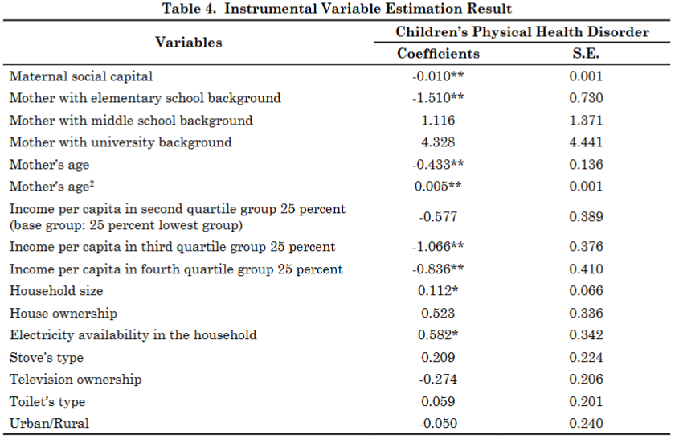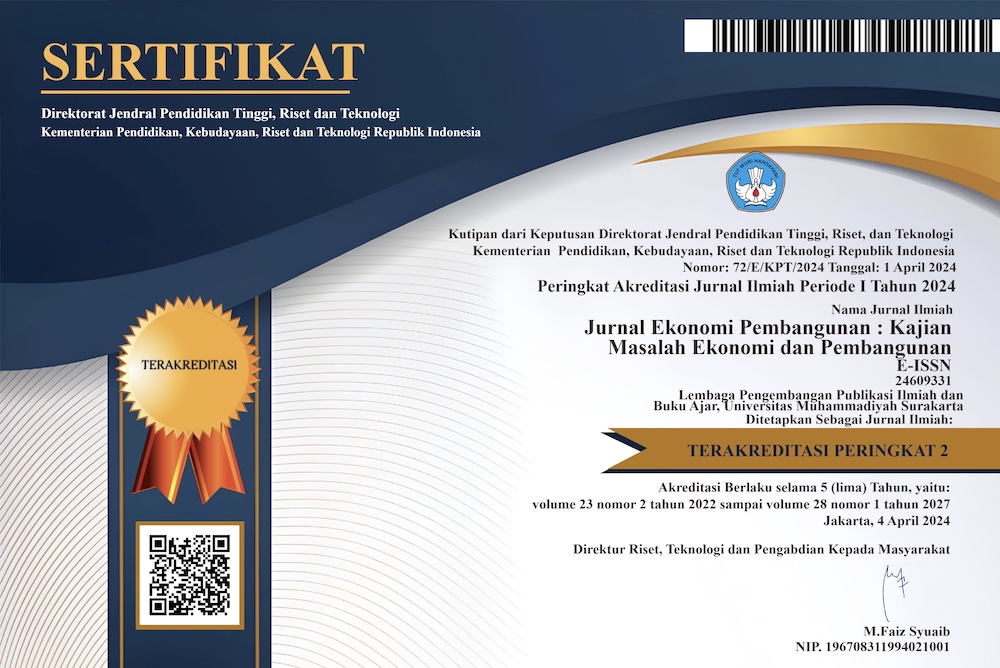Does Maternal Social Capital Affect Children’s Physical Health in The Future?
DOI:
https://doi.org/10.23917/jep.v24i1.18601Keywords:
Maternal Social Capital, Children’s Health Status, Physical Health Disorder, Instrumental VariableAbstract
Social capital is one of the capitals needed by mothers in caring for children. This study aimed to analyze the impact of maternal social capital on children’s physical health in the future. Using pooled data in Indonesia Family Life Survey (IFLS) in 1997 and 2014, this study could capture the long-term effect of maternal social capital in children’s early life via the mother’s participation in community-based associations. The methodology of this study is an instrumental variable to overcome the endogeneity of a mother’s social capital. The ethnic similarity is applied as an instrumental variable that correlates with maternal social capital but is uncorrelated with children’s physical health in the future. The result showed that maternal social capital could decrease their children’s physical health disorder as young adults. The more intense the mother participates in her association; the fewer children’s physical health disorders occur. Based on the results, this paper recommends to consider improving the number of programs and activities in the village as a channel to advance information and access to maternal health knowledge, specifically in remote areas.
Downloads
















